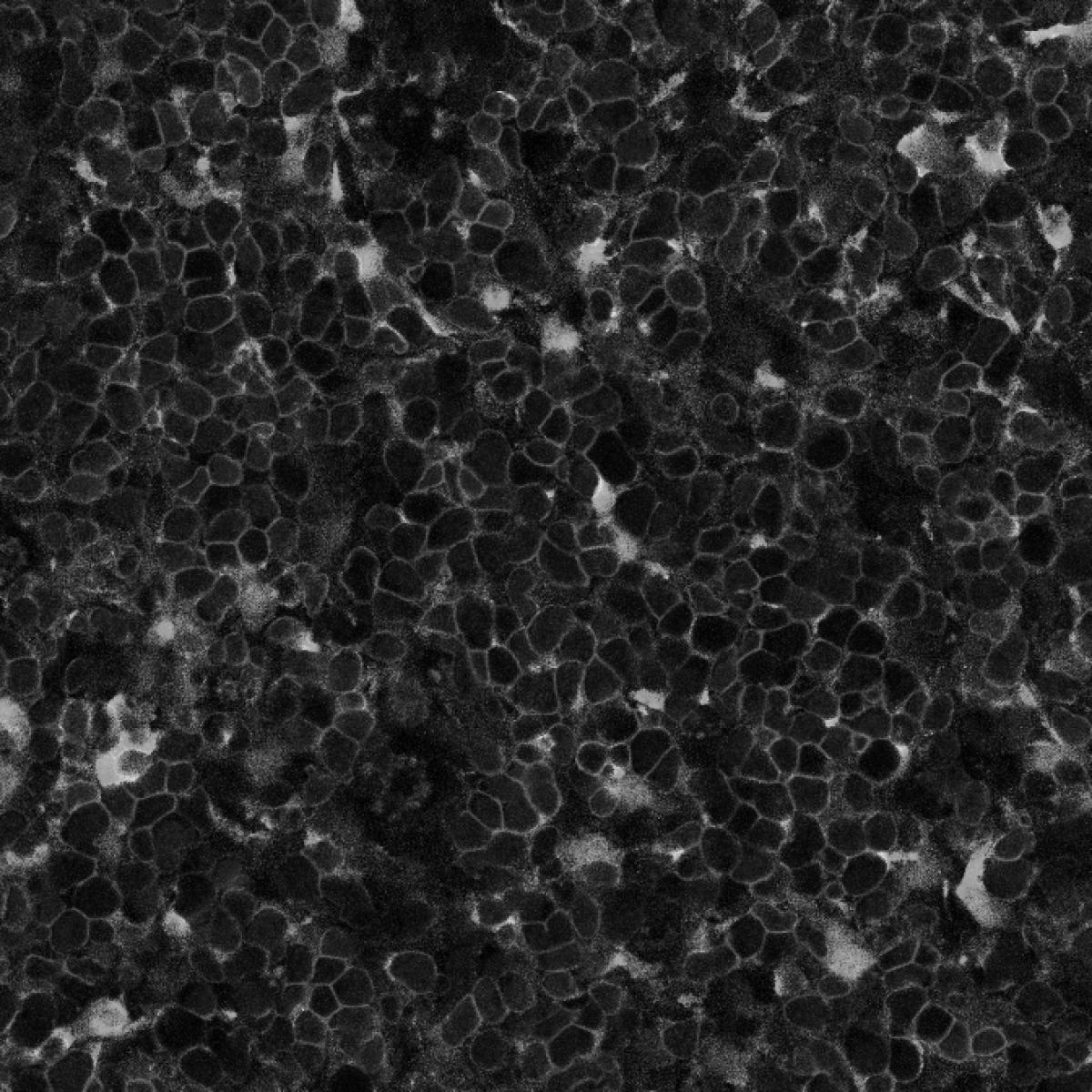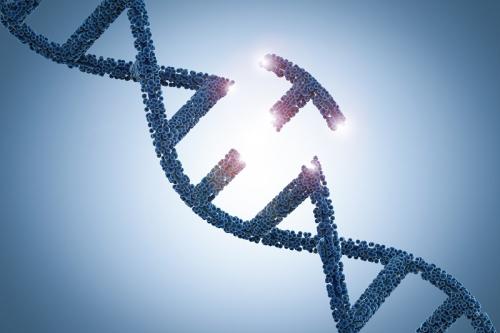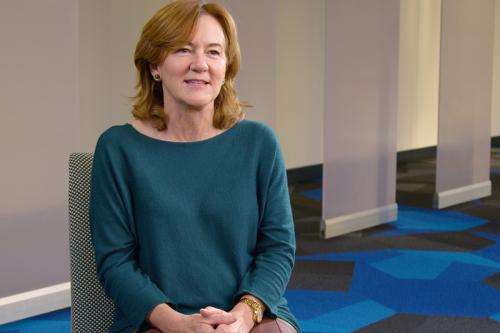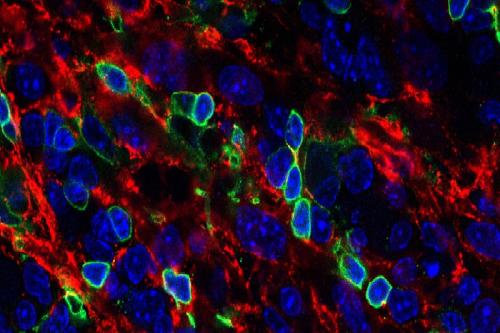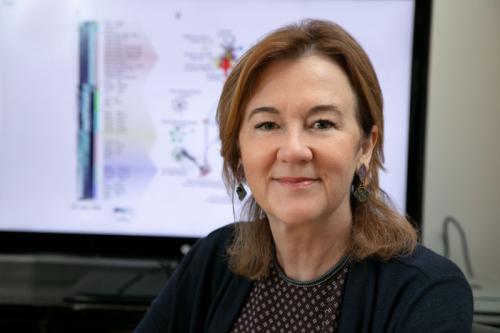
Gay M. Crooks, M.D.
- Professor, Pathology and Laboratory Medicine
- Professor, Pediatrics
- Director, UCLA Immunology, Infection, Inflammation and Transplantation Research Theme
- Director, Cancer and Stem Cell Biology, UCLA Health Jonsson Comprehensive Cancer Center

Gay M. Crooks, M.D., is a pediatric bone marrow transplant physician who studies how blood stem cells produce all types of blood and immune cells in development and decline as people age. She seeks to develop stem cell-based T cell immunotherapies for cancer and devise methods to generate and regulate a healthy immune system from blood stem cells.
Crooks has long been interested in the way blood stem cells in the bone marrow are able to generate the billions of diverse cell types in the blood. Crooks’ stem cell research was born from her clinical work as a bone marrow transplant physician caring for children with leukemia and disorders of the blood and the immune system. To overcome shortages of matched adult stem cells for life-saving transplants, Crooks seeks to apply her findings to develop new ways of making blood and immune cells from human pluripotent stem cells.
While pursuing these therapies, Crooks became interested in the thymus — a small gland in the middle of the chest that instructs blood cells to become T cells. Thymic function deteriorates with age and also after chemotherapy, stem cell transplantation and irradiation. Because the thymus is critical to the immune system, poor function can increase the risk of infection, autoimmune diseases and cancer.
Seeking to further explore the precise mechanisms of T cell production in the thymus, Crooks had to overcome historical limitations related to the recreation of this process in the lab. Along with center member Christopher Seet, M.D., Ph.D., Crooks developed an in vitro 3D model called the artificial thymic organoid, which mimics the stages of T cell development and maturation in the human and mouse thymus. This model has been used in a wide range of applications including the study of T cell differentiation using stem cells from patients with genetic forms of T cell immune deficiency. Crooks further adapted this system to efficiently generate mature T cells from human pluripotent stem cells and is exploring this as a platform technology for in vitro derived T cell therapies.
Research Projects
- Understanding the regulation of the first stages of T cell differentiation The process by which stem cells transform into specific, specialized cell types with distinct functions and features. differentiation The process by which stem cells transform into specific, specialized cell types with distinct functions and features. from blood and pluripotent stem cells Stem cells that can undergo self-renewal and differentiation to become any cell type found in the body. The two major types used in research are embryonic stem cells and induced pluripotent stem cells. pluripotent stem cells Stem cells that can undergo self-renewal and differentiation to become any cell type found in the body. The two major types used in research are embryonic stem cells and induced pluripotent stem cells.
- Developing gene editing A type of gene therapy that works by delivering genetic material that can directly edit pieces of DNA within a cell. This changes the instructions the DNA encodes for, which ultimately results in an increase or decrease in the production of a certain protein and the restoration of proper cell function. gene editing A type of gene therapy that works by delivering genetic material that can directly edit pieces of DNA within a cell. This changes the instructions the DNA encodes for, which ultimately results in an increase or decrease in the production of a certain protein and the restoration of proper cell function. methods to produce mature T cells White blood cells that naturally fight against disease-causing invaders using specialized molecules, called receptors, on their cell surface. The receptors help T cells seek out and destroy virus-infected cells or cancer cells. T cells White blood cells that naturally fight against disease-causing invaders using specialized molecules, called receptors, on their cell surface. The receptors help T cells seek out and destroy virus-infected cells or cancer cells. from pluripotent stem cells as a universal source for off-the-shelf A type of "universal" cell therapy that can safely be used in any person. These experimental therapies rely on healthy donor cells that — either due to their unique properties or thanks to genetic modification — do not carry the risk of being rejected by patients' immune systems. Because these therapies do not have to be manufactured on a patient-specific basis, they can benefit more patients and reach them in a faster, more cost-effective way. off-the-shelf A type of "universal" cell therapy that can safely be used in any person. These experimental therapies rely on healthy donor cells that — either due to their unique properties or thanks to genetic modification — do not carry the risk of being rejected by patients' immune systems. Because these therapies do not have to be manufactured on a patient-specific basis, they can benefit more patients and reach them in a faster, more cost-effective way. immunotherapy A type of treatment that uses the body's own immune system to fight cancer, infections and other diseases. This approach has revolutionized cancer care and is also being applied in experimental treatments for HIV, lupus and other conditions. immunotherapy A type of treatment that uses the body's own immune system to fight cancer, infections and other diseases. This approach has revolutionized cancer care and is also being applied in experimental treatments for HIV, lupus and other conditions. approaches
- Illuminating the biology of the thymic microenvironment in newborns and during aging
-
Fellowships
- Pediatric Hematology-Oncology, Children's Hospital of Los Angeles, 1993
- Pediatrics, Princess Margaret Hospital for Children, Australia, 1989
Residency
- Pediatrics, Princess Margaret Hospital for Children, Australia, 1984
Internship
- Internal Medicine, Sir Charles Gairdner Hospital, Australia, 1983
Degree
- M.D., University of Western Australia, 1981
-
